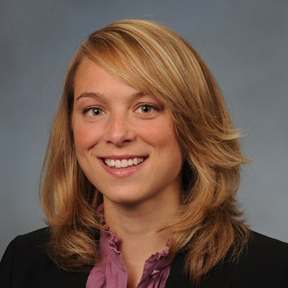Why I Chose Cardiology: Shae Anderson, MD

FEATURE | In this edition of the ACC WIC Section's #ChooseCardiology series, Shae Anderson, MD, shares why she would choose a career in cardiology again.
Why did you choose cardiology?
My fascination with cardiac physiology, the potential to make a profound clinical impact, and the diversity of career and lifestyle options led me to choose cardiology as a career, specifically pediatric cardiology.
I wanted a career that would remind me every day that practicing medicine is a privilege and would challenge me to strive for excellence in my work. I have an immense sense of privilege in being able to acquire and advance knowledge in a field I enjoy while also caring for families and their most prized possessions.
My own family history of cardiovascular disease – including early sudden cardiac deaths, early coronary artery disease, and late diagnoses of structural heart disease and arrhythmias – gives me a true appreciation of the burden of cardiovascular disease and the need for timely research, prevention and intervention.
Within cardiology there is an ever-increasing amount of technology and knowledge to aid in this endeavor and an ever-increasing number of subspecialties. These both were big draws for me when I decided my career path.
I knew a career in cardiology would be full of exciting medical advancements and that I would be able to find a niche that fit my interests and priorities.
What do you like best about cardiology?
The most rewarding part of working in cardiology is the opportunity to have impactful interactions with patients and families. These rewarding moments come in a variety of settings from the outpatient clinic to the post-operative cardiac intensive care unit.
It is a joy to see a parent's relief when I explain that their toddler has an innocent murmur and a healthy heart. Although challenging, it is also rewarding to work toward the most optimal outcomes and provide reassurance to families.
For instance, as part of team of cardiologists and surgeons, I may follow expectant parents of a fetus with cyanotic congenital heart disease or a family facing the loss of their critically ill child. We walk with them on every step of their journey.
Who has been a role model or mentor for you?
I have been fortunate to have mentors inspire and encourage me throughout my training. Ritu Sachdeva, MBBS, FACC, is one of my treasured mentors.
She is a pediatric cardiologist and noninvasive cardiac imager at Emory University, a wife and mother of two, a successful researcher, a devoted mentor, and a skilled educator. She also is active in institutional and national committees.
Sachdeva shepherded me through my first presentations and research projects and continues to be my advocate. She remains approachable but keeps me accountable to deadlines and goals.
She is inspiring not only for all she does but also in how she remains selfless, humble and respectful of all there is to learn across the entire medical team.
Sachdeva sets an example for me in how to maintain work-life balance. She knows when she does not have the bandwidth to invest in a new mentee, when she needs to leave one committee because of the increasing demands of another, when she needs to take vacation and plan an international trip for her family, or when she needs to plan a women in cardiology gathering!
She is a phenomenal mentor. I know she believes in me, which is just what I need to get through some of those challenging moments of training.
Why did you choose this area of cardiology (or what area are you considering)?
I chose to subspecialize within pediatric cardiology and pursue an advanced fellowship in noninvasive imaging, receiving training in advanced echocardiography, fetal echo, cardiac MRI and cardiac CT.
This is the niche within cardiology that combines several of my academic and career interests, such as radiology, developmental embryology and maternal-fetal medicine.
A career in cardiac imaging fulfills my desire to maintain exposure to a broad range of diseases and patient populations while applying imaging tools for diverse set of diagnostic and interventional purposes.
The procedural skill required, interaction with patients, multidisciplinary collaboration, ripe opportunities for research and application of new technology, and varied work environments also were major factors in my decision.
What advice would you give women considering cardiology?
If you have a passion for cardiovascular medicine, do not let anything squelch it. My soft-spoken personality led others to initially discourage me from pursuing cardiology.
They were uncertain if my personality would be "strong" enough to handle interactions with surgical counterparts and keep up in the cardiac departments that historically were full of outspoken personalities and dominated by men.
I am extremely grateful that I got to know male and female cardiologists with a wide spectrum of personalities and ambitions to know that I did not need to fit an antiquated image to be successful.
I resolved not to give up in the face of doubt or discouragement and to pursue my goal to become a pediatric cardiologist with even more fervor. The doubt also served as an opportunity for personal and professional growth – I discovered I needed to learn how to convey my self-confidence and interests to others.
Developing the skills to be my own advocate is an ongoing essential part of my growth as a physician, and I have learned that I can do so without compromising any fiber of who I am. Aspiring female cardiologists should know that the field is rich with a multitude of career possibilities, and they should let nothing stand in the way of achieving their aspirations!
#ChooseCardiology because it will open up a world of career and work-life choices, be filled with exciting medical advances and rewarding patient and family interactions, and reinforce each day that it is a privilege to practice medicine.